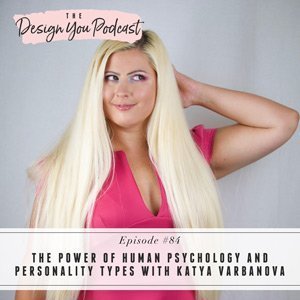
Friends, I am so excited to bring you this interview today! It might be my favorite guest episode we’ve ever had on the podcast and I’m sure you’re going to love it too. Katya Varbanova is a viral video creator and marketing strategist who helps entrepreneurs go from having no presence online to generating at least $20,000 a month with only 20 hours of work a week!
If that hasn’t already reeled you in, Katya is a big proponent of the Myers-Briggs personality test, which I also love, but she uses it as the framework for her signature approach that teaches people how to market successfully. We’re diving into the idea of compatibility in personality types and Katya takes us through her process for creating viral videos too.
If you feel like you can’t be successful because you’re not an extrovert like me, for example, or have a big presence or audience, Katya tells us the truth of what it takes to be an icon in your own right that I think will be super helpful to all of you. You are going to love absolutely everything she has to share with us, so tune in!
If you want to keep this conversation going, you have to join my free Design You Podcast community on Facebook. We have great conversations over there about the podcast episodes and our podcast guests are in there too! So head on over and I’ll see you there!












